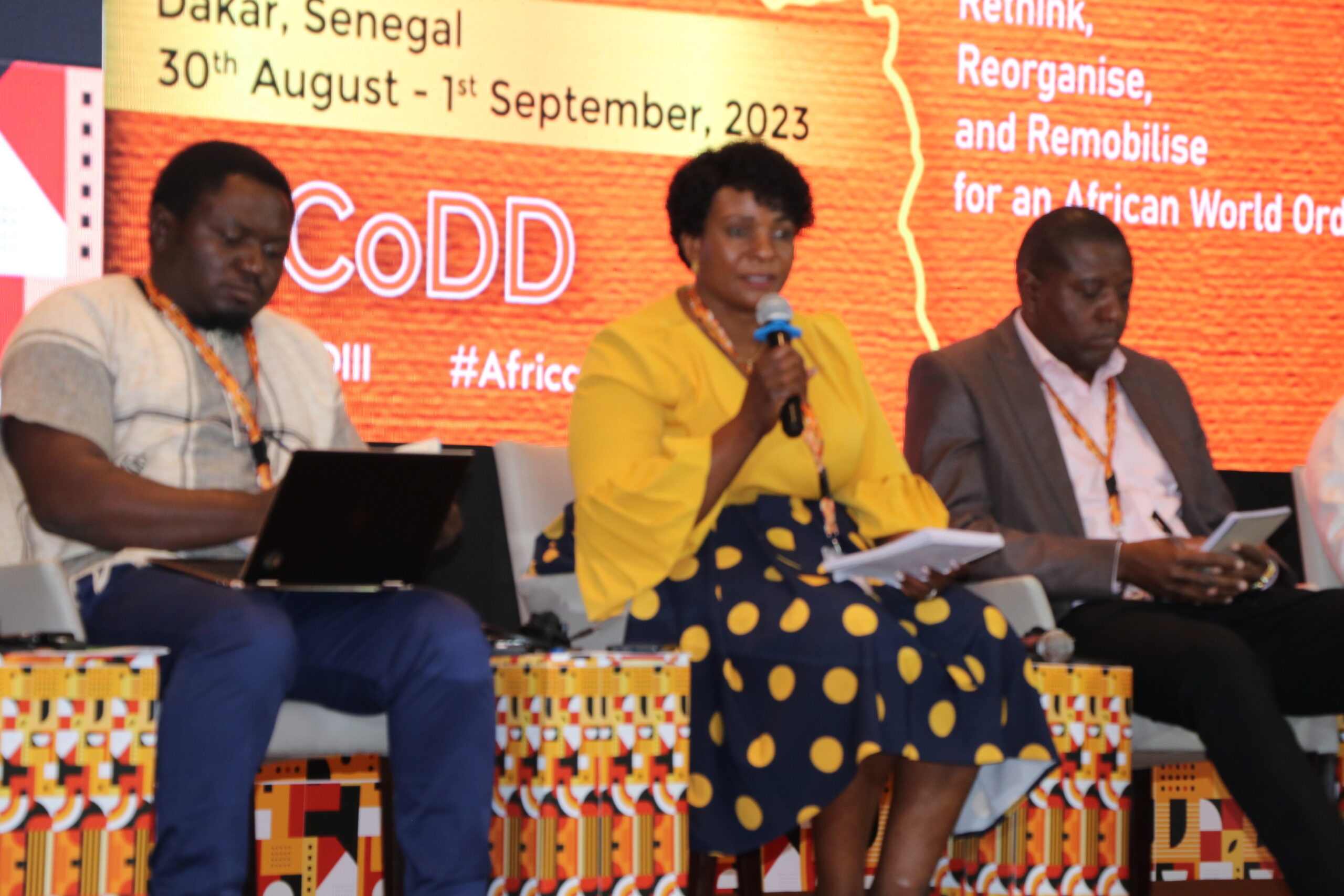The Members of parliament (MPs) of African countries are urged to seriously interrogate their executives to understand the magnitude and usage of the debt the executives borrow on behalf of their people.
“As parliamentarians we have to interrogate the executive to find out what is the debt meant for; how is it going to impact the country; how is the going to pay back; what investments are we going to put using these resources they [the executives} are borrowing. This is important for us to do as parliamentarians,” said Hon. Chrizoster Phiri – MP of Zambia.
“But you find in most cases when budget or public debt contract is brought to the parliament, they just read through, then one two people debate and pass the bill, which is not the right way to do,” she said, speaking at a panel organized during the third African Debt and Development Conference (AfCoDD III) held in Dakar, Senegal last week.
“We need to rethink and organize ourselves as parliamentarians so that we do a serious interrogation to the executive. When we contract a debt, we know for sure there is a need and the country is going to manage to payback,” she said.
Reports show that because most of the African countries have misused the money they borrowed or allocated for unintended purposes, many African countries are currently experiencing debt distress.
In 2022, public debt in Africa reached USD 1.8 trillion.
While this is a fraction of the overall outstanding debt of developing countries, according to the report by United Nations Conference on Trade and Development (UNCTAD), which stated there were 27 countries in Africa in 2020 with a ratio of debt to GDP above 60%, a level seen as a threshold for sustainability. Africa’s debt has increased by 183% since 2010, a rate roughly four times higher than its growth rate of GDP in dollar terms.
“…The problem is no with the debt itself. Debt is not a problem. The problem is how it is contracted and how it is managed. But if everything is done well, there is no issue. The problem is that most of the money borrowed by African leaders is not intended for the purpose the people are told. That money end up on something else completely contrary to what has been intended for. That is the reason we had not been able to pay back. And we keep on borrowing, borrowing, and borrowing because the money is not producing what we expected it to be producing,” said Mozambique MP and Vice President of African Parliamentarians Network Against Corruption (APNAC).
“…The money we have been paying back most of it ended up in the pockets of few officials. May be to be more polite it I should say mismanaged, a close word to say stollen…So fighting corruption is one way of controlling the debt money is being used in our continent. And we are very happy to say that AFRODAD and other organizations that are part of this annual conference are working towards closing the gaps,” he said, indicating that “after all it is a shame for Africa, the richest continent in the world [in terms of natural resources], to borrow money from the poorer countries of the world”.
Organized by AFRODAD and Trust Africa, AfCoDD III is held with a theme “the 4rs For Africa Rule-Maker: Reimagining, Rethinking, Reorganizing, and Remobilizing for An African World Order”. The participants of the panels and the conference have reflected on topics related to debt and the approaches Africa as a continent need to pursue for a better tomorrow.
